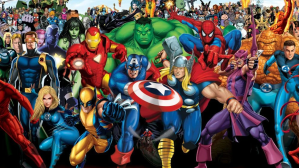Director Daniel Farrands took an unusual approach to looking at the saga of the DeFeo murders that inspired The Amityville Horror in his new film The Amityville Murders.
Videos by ComicBook.com
That is to say, he told their story. While there have been a handful of movies made over the years using the “Amityville” name, relatively few have looked at the DeFeo family and the murders that happened just before the famous house was sold to George and Kathy Lutz, who moved out shortly afterward, claiming that it was haunted. The closest previous attempt at a feature film about the murders was 1982’s Amityville II: The Possession, and while Farrands is a fan of that movie — he actually recast two of its actors in new roles for his film — it was heavily fictionalized, to the point where it even changed the names of the family.
Farrands joined ComicBook.com to discuss The Amityville Murders, which is available now on VOD and streaming services.
Because obviously this movie being so similar in concept to Amityville II, at what point did you decide to get Diane Franklin and Burt Young back in this?
For me, it was a no-brainer. I mean, I kind of argue it’s not really the same as Amityville II at all, I think Amityville II is great. I mean, I think it’s the best of all the movies that use the “Amityville” title. And I just feel like that one was much more kind of of the generation of Exorcist, and The Omen, and all of that was very heavily into the Catholic tropes. You know, possession and the exorcism and all that. That’s not this movie at all.
Theirs was much more loosely-based on the case of the DeFeo massacre that occurred in that house. Ours, I think, just tries to move a little closer to what might have happened, especially because I kind of approach it from three points of view.
But to your question, in terms of Diane and Burt, for me Diane was always in my mind. We connected the first time at a screening of Amityville II at the New Bev Theater here in LA that’s owned by Quentin Tarantino. He’s a big fan of that movie, so they screened it one night. And Diane came and did her Q&A, and I just- it kind of flashed on me in that moment, wouldn’t it be great if she played the mom? Because I’ve had this idea for this movie in my head for a while.
We talked very briefly, it was a kind of a nothing conversation. But then when this became more real in the summer of 2017, I was able to make contact with her, and it suddenly fell into place. She came, she wanted to audition; she didn’t want it to be just something where we just gave her a role. The producers certainly wanted to see her before we agreed on it.
But when she came in, it was like a bit of magic. And it was great, because she was such a great audition, and she just nailed it. And there was no question. And then it just sort of naturally from there followed to bring Burt to play her dad. Obviously a different version of that family, this one following the DeFeo’s story.
I had always kind of assumed that they changed the names to avoid litigation, since there are allegations of abuse and organized crime and everything else wrapped up in the DeFeo story.
You know, it’s a good question. I would have been way too young at the time to know whether or not they could have used the DeFeo name. I’m sure that the reason they changed the name was to avoid any litigation and things like that.
Also, depiction laws have changed quite a bit over the years. There was a famous case just a couple years ago that Gloria de Havilland was not happy about her depiction in the TV movie about a feud between Bette Davis and Joan Crawford over the years. And she attempted to sue and it just didn’t work.
There’s a lot to be said about the First Amendment and the rights it gives artists to sort of tell their versions of true stories, so. And I think that’s come about more in the past decade, more than it was 30 years ago. Those laws hadn’t really quite solidified the way they have now.
I wanted to tell the story because I had done a documentary on Amityville almost 20 years ago. It was a History Channel two-part special. And so I got to go and interview and meet all of the people, at least the living ones at the time, who had been involved, with the exception of Butch DeFeo, who did not want to appear without being paid a bunch of money. We chose not to pay him, so he chose not to do it.
So I was very familiar with the story, and I’d done all the research back then, and had become friends through that with the Lutz family, who had moved into the house after the DeFeos. So I got to know them, and I got to know their side of the story, but I always felt like this compelling piece of the puzzle was the DeFeo murders. And nothing had really ever been dramatized that way about them.
So although our movie is a scary movie, I still think it works on these levels of, was he a drug addict and that’s what’s causing him to hallucinate these things? Was brought on because of years of abuse at the hands of a very, very militant father? Or was there something to this idea of there being a haunting in the house, a presence that drove him? The movie looks at it from those three angles.
As somebody who has done this story as a documentary, did you feel obliged to provide as many “takes” as you could and let the audience sort it out?
I think so, because I think especially in a case like the Amityville one, unfortunately we’re never going to know. Butch DeFeo has changed his story so many times about what really went down that night. And he sort of held to this story about his teenage sister, Dawn, having committed the murders, and he killed her in self defense, and it’s just — it’s ludicrous.
I mean, all you have to do is look at the crime scene photos, as gory and horrible as they are. You see Dawn, just like the rest of the family, was tucked into her bed. There was no struggle, there was no fight. Why would she dress in a nightgown to kill everyone? It just doesn’t make any sense. It just doesn’t add up. Nothing he says adds up, and he’s the only one who really knows, and he’ll never tell.
So I think you’re just left with this. I think Amityville as a whole, not only because of the tragedy of the murders, but obviously the stories of the hauntings the Lutzes say they experienced, has captured the public’s imagination. But there are unanswered questions about all of those events. So I think, yeah, it’s best to present it in all the ways that people have thought of it, and then the audience can kind of take from it what they want.
What is the difference between trying to bring a performance out of an actor and trying to bring the best response out of an interview subject in a documentary?
It’s not dissimilar. It’s connecting with people to get them to be their most honest. I think an actor, the best performances are the ones when they’re being at their most vulnerable and their most honest. And I do try to connect with the actors in that way. I think I’m more of an actor’s director than I am a technical director.
I think my talent is more in trying to work with the people and make them comfortable, and make them understand, “here’s where we’re at, here’s where this person is, here’s what’s going through her mind, here’s what she just came from. This was where she was born.” All of the things that help an actor embrace the moment.
So I spend quite a bit of time with the cast. That held true later in the next film I did, with Hilary Duff, where she played Sharon Tate. That was difficult for her. I mean, she’d not only never played a real person so iconic like that — and that’s dangerous territory to step into — but she’d never done a scary movie. She did Disney, had that background, and very wholesome roles. So this was very different for her, and it was a challenge, but she was up to it. I felt like in that one she really delivered.
Diane is a great example. She was the legacy person of our cast, that really brought the history of the movie that she’d done. There’s something very special about having her in this but also I think she made everyone feel like she had their backs. Diane has that quality about her anyway. She’s the mother at heart, so she kind of mothers the cast, and took everyone under her wing, and it was a nice thing to have, that support.
While obviously there is awareness of the Amityville “brand,” so to speak, this is a very different movie than most people picking up the movie casually might expect. Did you consider whether to lean into that or try to work around it during production and promotion?
I think that was a challenge. I think from a marketing point-of-view, to have that house as a sort of iconic place of evil, of course — everybody recognizes it. And this story took place in that house, so there’s no denying the connection.
But I don’t even think there’s such thing as an Amityville Horror franchise. It’s funny when I see articles and things posted about our movie, they’ll always go through the trouble of listing every movie with the title “Amityville.” None of those movies were ever authorized sequels or anything. It’s just people saying, “Oh, it’s the name of a town, and oh, people think that’s scary, so we can just call our movie that.” There’s no franchise, as it were. I think there were only, out of all those movies, I think three were ever “authorized.”
The only people who own any sequel rights are the Lutzes, for their story, and the Amityville continuing story. So the rights are muddy in that sense. But yeah, I think there’s a draw to this, and I think it’s the fact that it has the mystery surrounding the murders….
How did no one from the neighborhood hear any gunshots in the middle of the night? I mean, this was a high-powered hunting rifle. How did none of the family members react when the first shots were fired, and get out of bed and run for their lives? How is that explainable? It’s not. And I think that’s what’s captivating.
Again, I wasn’t setting out to make an Amityville Horror movie, I was trying to make a movie about a family that tragically lost their lives, and it just happened to be in that house.








